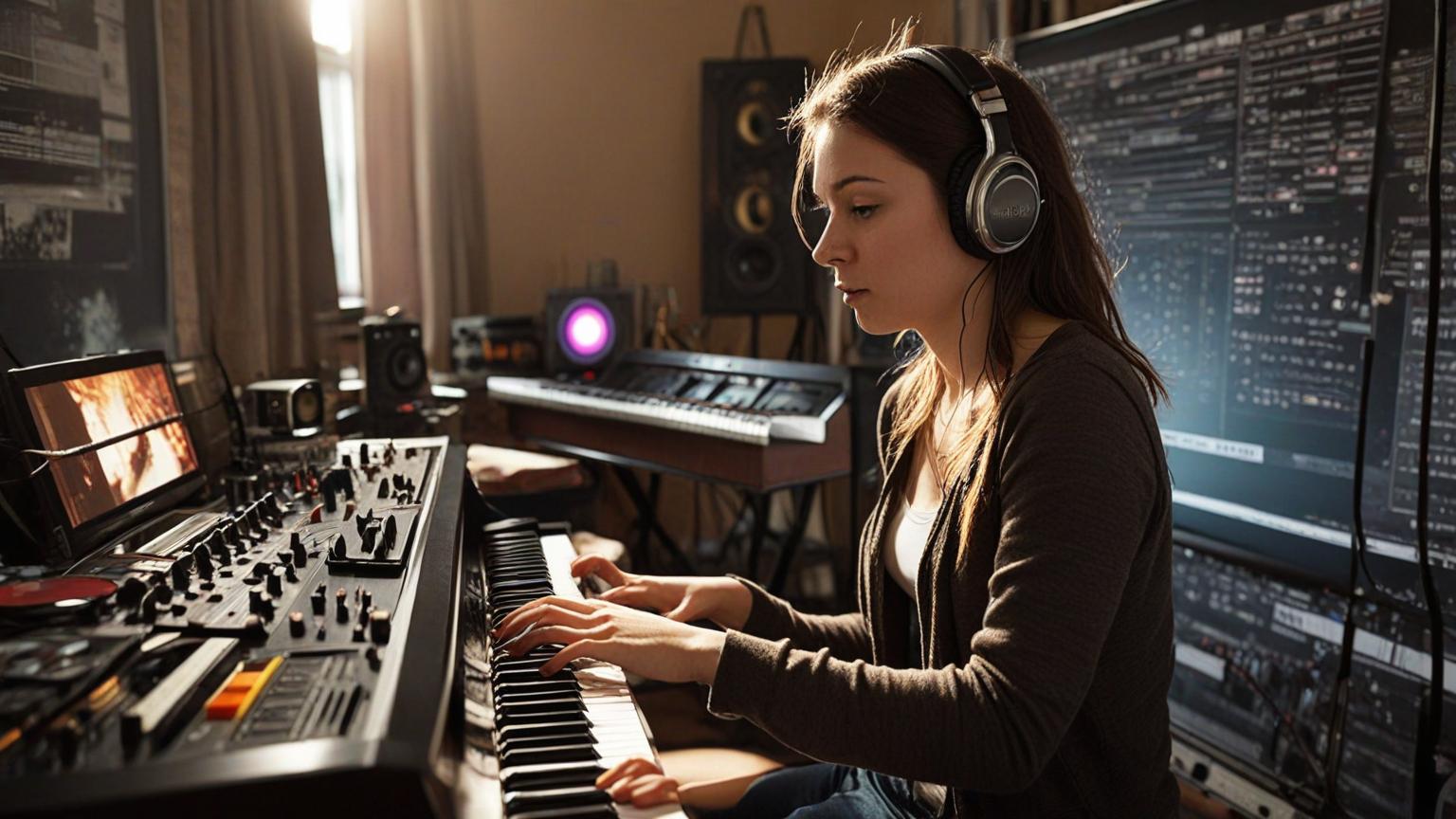In the glitzy world of mainstream cinema, the impact of film scores is a well-documented subject. Iconic themes like John Williams' work on 'Star Wars' or Hans Zimmer's epic compositions for 'The Dark Knight' are recognized as integral elements that elevate a film's storytelling and emotional depth. However, the influence of soundtracks in the indie film circuit is often less heralded, but arguably just as significant.
While blockbusters enjoy budgets that allow them to work with top-notch orchestras and renowned composers, indie films frequently challenge composers to work with limited resources, thereby fostering a landscape ripe for creativity. In such settings, composers are often unshackled from the conventional expectations that big studios impose, which allows for the type of one-of-a-kind experimentation that can lead to groundbreaking work in the world of film music.
One quintessential example is the work of Jon Brion on 'Eternal Sunshine of the Spotless Mind.' Despite the film's relatively modest budget, Brion's haunting score elevates the narrative's psychological depth, crafting an auditory landscape that captures the film's essence of blurred reality and emotional turmoil.
Indie films often present a unique set of challenges and opportunities for composers. Working under tight financial constraints often means turning towards unconventional instruments and sounds, aiming to evoke emotions on a shoestring. This spark of ingenuity and innovation pushes the boundaries of what film scores can be, presenting audiences with fresh auditory experiences. Indy scores often leverage minimalism, and the craft excels through creative restrictions, pushing composers to think outside the prevailing norms of the film music industry.
An excellent case study is the film 'Moonlight,' whose score by Nicholas Britell employs a blend of classical orchestration and modern electronic influences. This unorthodox mixture serves to augment the film's narrative, drawing the audience deeper into its intimate portrayal of human connection and identity.
Moreover, indie soundtracks often become the unsung heroes of cultural movements. Take, for instance, the 2012 film 'Beasts of the Southern Wild,' which features a score composed by Dan Romer and director Benh Zeitlin. Their collaborative efforts drew directly from the culture and raw emotive power rooted in the film's setting, helping to catapult the film into cult status while shedding light on underrepresented communities.
What becomes apparent across these indie gems is the noteworthy intimacy between director and composer. In many cases, the filmmaker-composer relationship defies the transactional nature commonly found in big-budget productions. Instead, it thrives on collaboration and shared vision, wherein the music is not just seen as an accessory to the visuals, but as an integral component of storytelling.
It is also worth noting that indie composers, through their unique approaches, often become harbingers of change in Hollywood. Many pioneering styles take root in the indie circuit, only to permeate mainstream cinema once their impact becomes undeniable. A potent example is Trent Reznor and Atticus Ross, who paved their way through unconventional film scoring and eventually reshaped the sonic landscape of mainstream film music.
Ultimately, the influence of soundtracks in indie films underscores an irrefutable truth: music's power to communicate emotions transcends budgetary constraints. Indie films remind us that creativity, passion, and vision are the true engines of innovation. They challenge us to rethink what film music can be, revealing that the boundaries of creativity are limited only by our imagination.
In a world inundated with content, it is the indie films, often overlooked, that reinvigorate the medium by leveraging music as a core storytelling device rather than an afterthought. These soundtracks not only highlight the film's narrative but also resonate with audiences long after the credits have rolled, fostering a deeper connection and understanding of the world we inhabit.
Exploring the underestimated impact of soundtracks in indie films

